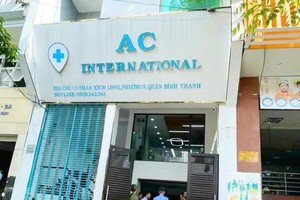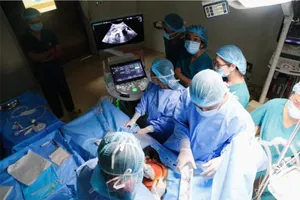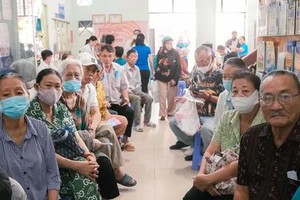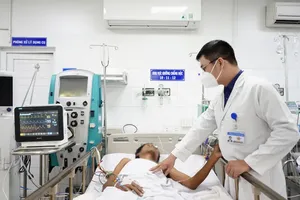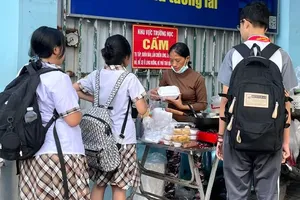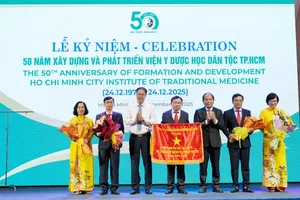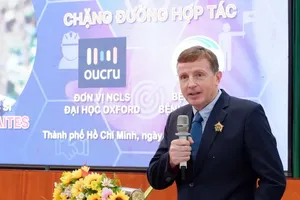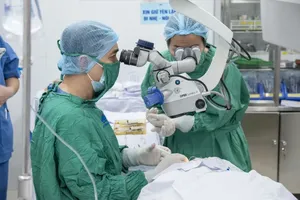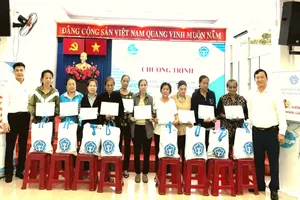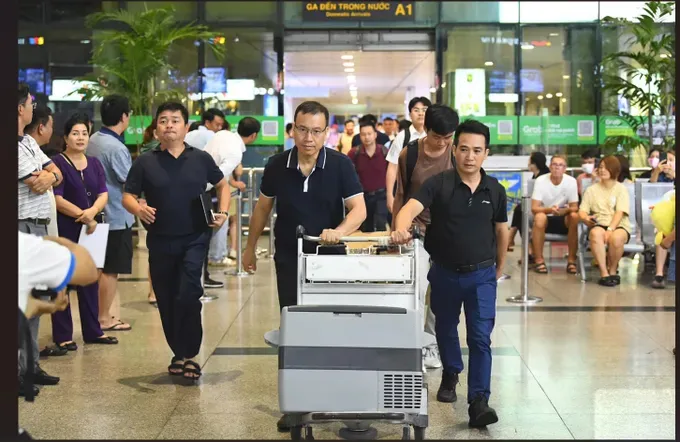
“Bending rules” to save life
On October 17, 2025, 61-year-old Tran Van Hoa (name changed at his request) suddenly went into severe ventricular fibrillation, a deadly arrhythmia that can cause sudden death. After a tense resuscitation, Truong Quang Khanh, MD PhD, Head of the Arrhythmia Department at Thong Nhat Hospital in HCMC, reportedly raced to report the situation to the hospital’s directors.
Mr. Hoa, he explained, was in end-stage heart failure, living precariously day-to-day, kept alive only by an implanted defibrillator (ICD). Even the simple act of breathing exhausted him. A heart transplant, Doctor Truong Quang Khanh insisted, was his only shot.
At that very moment, in the same hospital, life was slipping away from a woman who had been in a traffic accident. The medical team was forced to deliver the terrible news to her family. After what was described as a period of intense and agonizing consideration, the patient’s only son choked back his grief and signed the organ donation forms. It was, as it turned out, what his mother had always wished for.
When a brain-dead donor heart became available, Mr. Hoa was the best match but too sick to move (“awful condition”). The problem is Thong Nhat Hospital wasn’t licensed for this technique, as Doctor Khanh informed.
Faced with a “life-or-death scenario,” the procedural barrier was dissolved. The Ministry of Health issued an emergency waiver authorizing the unlicensed hospital to proceed. Expert teams from Cho Ray and Hue Central Hospital were scrambled to HCMC. Thanks to this urgent coordination and the humane spirit, a new heart was beating in Mr. Hoa’s chest by the morning of October 18, 2025.
“Cross-Vietnam” transplants demand absolute professional operation. On August 24, 2024, medical staff had a sleepless night when a donor heart from a Hanoi traffic accident victim was traveling thousands of kilometers to HCMC.
Assoc Prof Nguyen Hoang Dinh, MD PhD, personally went to receive and escort the heart. The ambulance raced through rain, police cleared roads, and the pilot waited. It took just 8 minutes from Tan Son Nhat International Airport to the OR. Outside, volunteers with the patient’s rare (Rh-) blood type waited, ready to give blood.
At 3:00 a.m. on August 25, Assoc Prof Nguyen Hoang Dinh emerged. The transplant was a success. A father was reborn. His wife Nguyen Thi Phuong Thanh was incredibly grateful. “They sacrificed so my family could be whole,” she said, knowing another family was saying its final goodbye.
Miracles born from humane gestures
Since the nation’s first kidney transplant in 1992, nearly 10,000 organ and tissue transplants have been performed. In August 2025, a massive leap forward was established when Viet Duc Hospital in Hanoi successfully performed the first-ever simultaneous heart-lung transplant, the most difficult technique in multi-organ transplantation.
38-year-old Tran Nhu Quynh was on “death’s door” from end-stage heart-lung failure. Director of Viet Duc Hospital Duong Duc Hung, MD PhD recalled, “this was probably going to be her last hospital stay.”
When a donor was found, the lungs were too large. The team had to trim both sides, a difficult deviation. Director Hung later said, his voice thick with emotion, “I had promised Ms. Quynh’s mother that I would return a daughter to her, and today, I kept my promise.”
On May 19, 2024, Prime Minister Pham Minh Chinh registered as an organ donor and called for all Vietnamese adults to join him, in the spirit of “Open your heart – Spread love – Light faith – Continue hope – Sow the seed of life.” This, it’s reported, marked a turning point, and the movement to register for organ donation has spread strongly ever since.
In reality, the world only performs about 100 heart-lung transplants each year due to the complexity and scarcity of organs. Ha Anh Duc, Head of the Medical Services Administration noted with pride: “This successful heart-lung transplant is proof that Vietnamese medicine can conquer technical peaks once considered impossible.”
Currently, a staggering 94 percent of all organ transplants in Vietnam come from living donors. The precious resource from brain-dead donors is still being missed, largely due to limitations in social awareness and the legal framework.
Du Thi Ngoc Thu, MD PhD, Head of the Organ Transplant Coordination Unit at Cho Ray Hospital, said mobilization was incredibly difficult, rife with skepticism and rumors. She recalled a widow falsely accused of selling her husband’s organs. In response, Cho Ray Hospital petitioned the Ministry of Health to grant the “For the People’s Health” insignia to donors. Ms. Ngoc Thu personally delivered the insignia and rallied local authorities to publicly protect the donor family.
At another funeral, she showed a mother a video of her son’s heart beating strongly in a stranger’s chest. The mother wept, “That’s his heart!” Ms. Ngoc Thu stressed the process of distributing transplanted organs must be transparent and the best medical match.
To date, the nation has received donations from 252 brain-dead donors, giving new life to 793 patients. Behind each of these life-extending surgeries is a synergy of hundreds of people, from medicine, aviation, traffic police, social work, and local government. And today, the “more than 144,000 registration forms” to donate are a testament to a humane and fair medical system.
Vietnam is rare in using commercial aircraft for organ transport. Since 2018, Vietnam Airlines has been a “special bridge.” A historic 2018 flight first carried a heart in the passenger cabin.
The airline issued an emergency organ transport protocol and will even adjust its flight schedule to succeed. In the first 9 months of 2025, it flew 10 such emergency flights through Hanoi, HCMC, Da Nang City, Hue City.
Le Minh Quan of Vietnam Airlines’ Noi Bai service center recalled a rainy night transporting a heart with only golden hours left. “Every single movement had to be fast and precise,” he said. “The next morning, we got the news that the heart was beating in a new body. I was speechless.”

